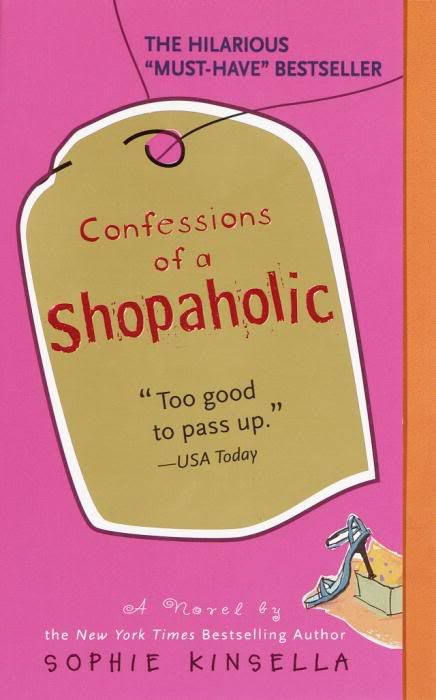On Inception, part 2
By Randell Tiongson on July 25th, 2010
.. con’t.
Here are some hard to swallow facts as well: the level of savings of Pinoys are well below many of our neighbors, consumer debt is rising in an alarming rate, we are not preparing for retirement, number of people with financial investments or insurance remains to be one of the lowest in Asia – in short, the average Pinoy is not prepared for the future. The growing number of seminars and books on personal finance is encouraging because it really does make a lot of sense. However, it is also discomforting at the same time because we need to tell people what they should already know for themselves already. Sometimes I find it silly that people need to be ‘tricked’ by many mindset alteration and motivational gimmickry just for them to be responsible enough to handle their finances. People are being duped that there is a secret to achieving wealth and financial freedom through the internet, seminars, speakers, books and all that. Just like Inception, many of today’s folks need to escape into fantasy land for them to achieve some peace. They spend like there’s no tomorrow and when they realize that they are headed south, they frantically grasp on illusions like new age hogwash or believe some individual who claims to unlock the ‘secrets’.
We need to wake up to our reality that we are responsible for the actions we take in personal finance and in life in general — and that’s the reality! There is no secret to achieving financial freedom and there is no short-cut – it is a process and we build it little by little by the actions we take. There’s no substitute to industriousness, prudence and discipline, to believe otherwise is full of folly.
In life, we can take the road of dreams but the fact remains that we need to wake up at some point. Take a hold of reality and be deliberate in the path we take. Work hard, be disciplined and put your faith in the source of real happiness, Jesus Christ – that’s a reality that will always be better than any dream.

On Inception, part 1
By Randell Tiongson on July 23rd, 2010

My wife and I had a date a few nights ago and it was spent watching the movie Inception. I was not too keen on watching that movie because I have always remembered Leonardo Di Caprio in his epic role in the movie Titanic — let’s just say I’m not a fan. However, my good friend and soon to be financial engineer Louis Chingcuanco was raving about this movie so my wife and I decided that watching it will be our date.
Movie was good and visually exhilarating although it made me a tad dizzy. The plot was well written and I would say that we thoroughly enjoyed the movie. My friend Louis was correct to say that it was really a ‘must-see’ flick. I like watching movies with my wife because I like to date her as often as I can afford and since movies are not too expensive, we can do this more often. Being a financial planner made me a cheapskate too, haha! We often advise couples that they should always have dates because it helps the relationship a lot but we also caution others about unnecessary and unplanned spending – watching movies is a good compromise! My wife is happy with a simple fast-food dinner and a movie for a date, I am truly blessed.
While I like the movie, watching it left me pondering about many things. The movie really imitates life today and how many people are so indulged with escapism. The movie was about the power and complexity of dreams and the difficulty of discerning what reality is all about. In the area of personal finance, many are also trapped in the world of escapism and succumb to living a life of fantasy they can hardly afford. It is a common fact the country’s biggest problem is poverty and yet we see facts like these: the average Pinoy changes his cell phone every 8 to 12 months, expensive coffee shops are mushrooming all over the metropolis, malls are sardine packed with people, etc. The facts belie our true state and I concur that the reason for it is because many of us are living in a state of dream and hardly in touch with reality.
… to be continued
Confession of a Financial Planner
By Randell Tiongson on February 15th, 2010
Here’s an article I wrote for my column at the Business Mirror a year ago, just thought of sharing this once more.
—————————————————————-
Confession of a Financial Planner
MY wife Mia and I went on a date last night. Since my wife loves to watch movies and since the secret to a happy life is a happy wife, I instinctively knew she would prefer watching a movie.
I thought she would prefer watching the John Lloyd Cruz-Sarah Geronimo movie so I was trying to psyche myself to watching it, but I was so delighted to find out she wanted to watch something else. My wife knew I’m not a big fan of those movies so she wanted to watch something else for my sake. That’s one of the many reasons I love my wife so much—so unselfish! Not wanting to be a total jerk by asking her to watch an action movie, I suggested to meet half-way. As a result, we ended up watching the movie Confessions of a Shopaholic. I was actually intrigued by it because my daughter Gabbie said it was a great movie while another daughter Billie liked the book.
How was the movie? It was awesome! In fact, I urge everyone reading this to watch the movie. Watching it is like attending a financial-literacy seminar, only more amusing, more relevant and actually more effective.
The plot revolves around a character named Rebecca Bloomwood (brilliantly portrayed by Isla Fisher) who has an exaggerated spending problem and ends up being a columnist for a personal-finance magazine. The main character represented many of us, albeit in a humorously exaggerated way. We live in a society that is afflicted with a debilitating disease called “consumerism.” This burden has manifested itself in a “spending problem,” resulting in many of us living a debt-ridden life—a life that robs us of true freedom and of victory.
As a financial planner myself, I was endeared with the character in the movie. Her column gives out a lot of practical and great personal advice and has a lot of followers, despite her financial life being in complete havoc. Well, I wouldn’t say I’m exactly like Ms. Bloomwood in the sense that I don’t really have a shopping addiction, and I’m not too sure if I do have many followers. While my financial life is not in havoc, it is far from being ideal.
Many times, I find myself “preaching” to myself whenever I write or speak. It’s not very wise for someone like me to say that I don’t have an “ideal” financial life, but I want people to know that I, too, experience the difficulties of putting my financial life in order. I went through a lot of mistakes that I have been trying to rectify. I was also afflicted with a spending problem that nearly left me in ruins. I made so much mistakes I later on regretted, which I wrote about in this column many months ago. But I learned from those mistakes and I am in a very long process of rectification. What is crucial is the realization of one’s problems and the resolution to learn from them, and have a lasting solution for them.
I do not only write or speak from a theoretical point of view. I am writing from painful personal experiences. We can’t “undo” many things we have done, but it doesn’t matter anymore as what’s done is done. Like anything in our lives, we must learn to stand when we fall. In doing so, we become more resilient, stronger and, most important, wiser.
Here’s a wise advice: To really fix a problem, go to the source of the problem. When I found myself with a financial burden, I tried many ways to “fix” it but I noticed that while some of those remedies worked, most of them did not permanently solve the problem. Like the many “solutions” we try, I found myself applying mostly short-term or “Band-Aid” solutions.
If we have a financial problem or a spending problem, we should determine the root cause of the problem. Is it the lack of income or the way we spend? Why do we spend the way we spend? In my case, I got into a financial mess because I had a “want” issue: I wanted this, I wanted that. It wasn’t just with me, it was with my family, too. But it was a “want” problem nonetheless.
Over the years, my “wants” became bigger and bigger and I found myself doing everything just so I can satisfy my “wants.” It didn’t really feel wrong at that time. In fact, some people might even say that it helped motivate me to work harder and harder. In retrospect, I now know it was very foolish of me not to have stopped my insatiable desire to want more and more. I am glad I came into my senses and was able to curb my “want” issues. I guess those desires are still there as I am only human, but I have developed a strong willpower to overcome them.
How was I able to overcome my weaknesses? Simple. I merely reexamined what is really important in my life. Do I want to impress others because of what I have, or do I want others pleased with me because of my character? Do I want to please my family with a life that I can hardly afford and, as a result, become a preoccupied husband or father? Or do I want my family to be pleased with me because I am a real and approachable head of the family for them, always there when they need me? Do I want people to listen to me because of what I have accomplished, or do I want people to have hope that they can have a good future by learning from the mistakes that I chose not to hide?
In the end, I chose what really was more important. I chose to have a meaningful relationship with what really is important in my life—my family and my savior, Jesus Christ. In doing so, I found a permanent solution to my deeply rooted “want” problems—the cause of my financial fall.
I fell down, I stood up, but I know I’ll fall down again—all these happen because God is molding something that is very important in me: my character. “…But we also rejoice in our sufferings, because we know that suffering produces perseverance; perseverance, character; and character, hope.”—Romans 5:3-4 (NIV). Our character will determine our future, even our financial future.
This is my confession.





